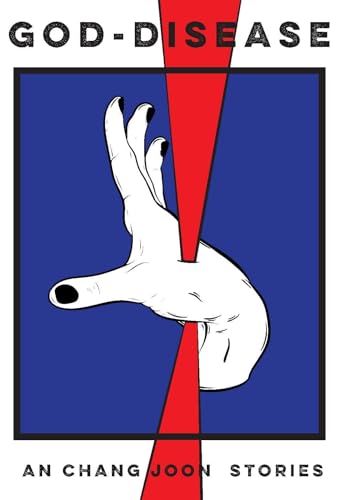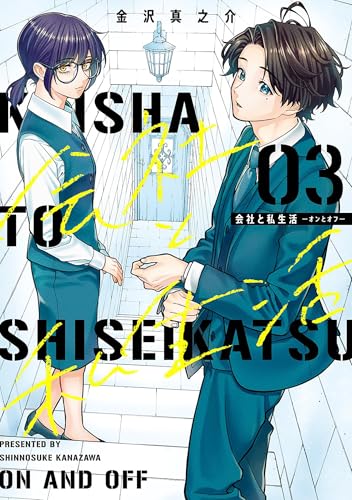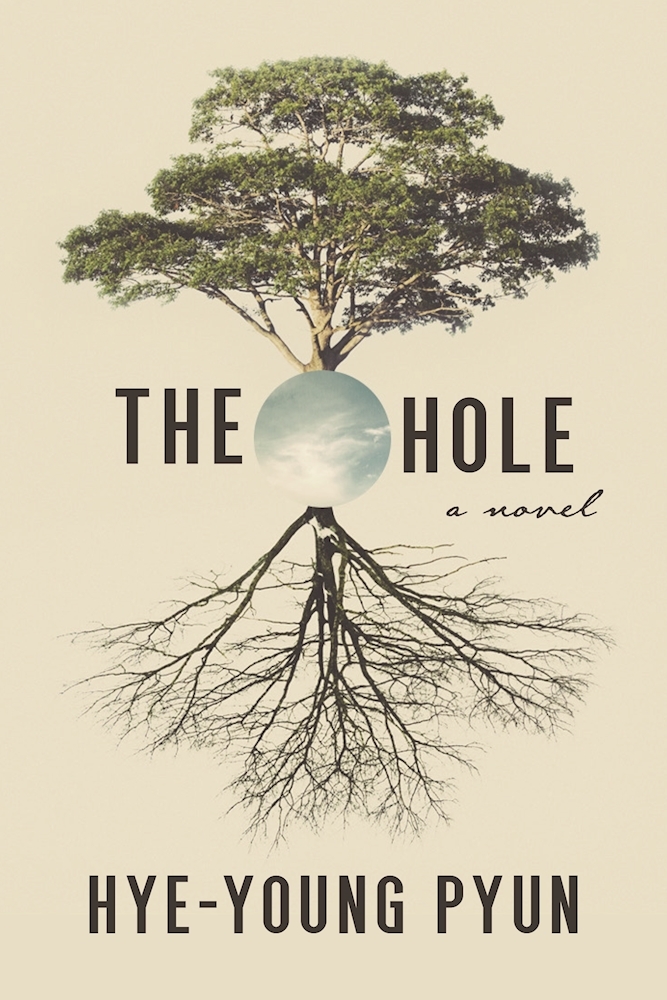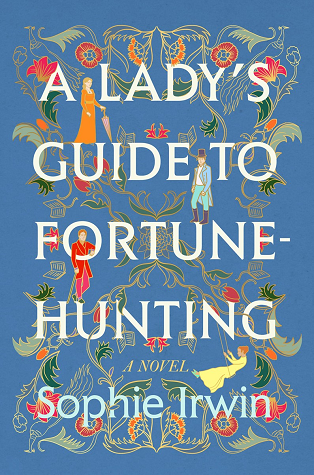tinycl0ud finished reading and wrote a review...
So this was quite disappointing because I liked the premise and I was looking forward to sci-fi YA book featuring queer protagonists. The concept sounded good: in the future in a city surrounded by ice, a teenager arrives and starts to uncover a plot involving androids while also falling in love with her friend.
I think the problems are largely (1) style and (2) character development. For (1), the writing is flat and painful to read. I get the feeling that it would work best on middle grade readers but the actual story seems geared towards actual teens, like 13-16. I spent a good number of years reading narrative essays written by 13-14y/os and they write better than this, with a wider range of vocabulary. For (2), the characters feel very two-dimensional. We often don't know how they're feeling or why they're feeling a certain emotion. Olive is supposed to be the protagonist but we get no sense of her interiority, just a vague idea of what interests her or what she wants to investigate. Her love interest, Ava, is caricature. The dialogue throughout, even for the adult characters, feels like something written by a young teen raised on soap operas and beginning their foray into writing fanfic.
i thought this was a debut novel but i looked it up and it's actually book 3 and can be a standalone. so idk i can't defend it.
tinycl0ud commented on tinycl0ud's review of Flesh
View spoiler
tinycl0ud finished reading and wrote a review...
Came for the espionage but got attached to the characters then they died :'-(((((((((((
Yohan is an orphaned spy trained from young by two mentors, both of whom are supposedly serving North Korea. Their enemies aren't just the Americans but also South Koreans. The spy network and each organisation's respective goals aren't made clear but that's okay, just don't focus on that. Yohan is ethnically Korean but that doesn't mean much when he has to have multiple East Asian identities and speak multiple languages to carry out his missions. Yunah, on the other hand, is Korean-American and working for the Americans, using her appearance to spy on Korean targets for them. All the action converges on a Korean restaurant in Oxford, run by a South Korean man who wanted to honour the mother who raised him single-handedly.
My feelings about their inevitable demise aside, I liked how the characters were negotiating their relationships with Korea/ the motherland and also with their Korean identities. I don't think it is a coincidence that when they reflected about what makes them Korean, they cannot help but think of their elders—their mothers, fathers, and grandmothers—and of Korean food, nourishing and familiar. This novel seems like a fun spy novel with car chases, lots of backstabbing, and people whipping guns out of nowhere, but really it is saying something about the complex irreconcilable love-hate that comes with being Korean diaspora.
tinycl0ud finished reading and wrote a review...
For the longest time I had this book confused with another book of the same title until I saw a copy in the library and realised it was a different one. I liked it! And I like how enduring the idea of a hole is to be used so creatively and productively across multiple stories. Etter's 'Ripe' has a hole (similarly represented on the page as growing in size), Junji Ito's stories frequently utilise holes (e.g., caves) as sites of unknowable evil or malice, and technically all those children's stories of digging deep enough to discover a whole new world underground (e.g., 'Artemis Fowl') are using the same concept. All kinds of holes exist and people fill them with things, sometimes with their imagination.
There is an actual hole here, the huge one the protagonist's MIL is digging in his front yard. She tells people it's for a pond, but it's obviously for his grave. The man, Oghi, is an academic cartographer who just got tenure, and one of the ancient maps he teaches about has a puncture right in the middle. He is able to come to the very wise and philosophical conclusion that that hole—gap, lacuna—is more significant than the rest of map because of all the lost history that it represents. However, he is completely oblivious to the holes in his own marriage, his wife's discontentment, and the gaping flaws in his assessment of her person and abilities.
Oghi is a man suddenly brought low when he gets into a car accident and emerges alive but severely disabled. Someone like him sees his present state as ill-befitting his station in life because he finds it demeaning to be at the mercy of his caregivers, who are women. His wife died in the same accident, but he mourns his job more than he mourns her. It's ironic how he mocked her for being (in his opinion) an unsuccessful loser who could not achieve anything, and the universe decided to punish him by stripping him of his glory and agency.
tinycl0ud finished reading and wrote a review...
Most people know of this author's essays and she's quoted all the time even on Tumblr (in the past) and Twitter (now), so imagine my surprise when I found out she had a short story collection too. It's nothing like what I imagined. The foreword said that they should feel contemporary in the year of 2017, but I feel like literary fiction has evolved very significantly in the past decade, so these stories feel dated but only in comparison to what's being published now.
What's really interesting is that the collection does not have a unifying theme save the fact that they were all written by a famous essayist. Each story is very different from the next. Some sound plausibly autobiographical ('Pilgrimage'), others are abstract and more challenging to figure out, with lots of references to the concept of Literature ('Project for a Trip to China', 'The Letter Scene', 'Unguided Tour', 'Debriefing') Some even feel like novellas disguised as short stories ('Old Complaints Revisited', 'Doctor Jekyll'). Some have dark humour and an unexpected bite ('Baby').
My favourite is 'American Spirits', which reads a little like a fable for repressed middle aged women, encouraging them to throw aside patriarchal institutions like wife-and-motherhood to live and love freely. I also loved 'The Dummy', in which a man creates a machine replica of himself to live his life and actually does it very well. His wife, children, and colleagues all believe it's him. One day, this dummy falls in love with a colleague and is driven to the heights of passion, ruining the man's plans of shirking his familial and societal duties. To solve this new problem, the man makes a second dummy. I would love to assign this story to a class of teenagers.
tinycl0ud finished reading and wrote a review...
I genuinely believe that Shuang Xuetao is one of the most exciting contemporary authors to watch because you just never know what to expect. His earlier collection of interconnected novellas, 'Rouge Street,' is overtly historical (and very good!), while this collection of eleven seemingly random stories is doing something a little more sly and playful with the idea of historical fiction. His stories range from using some magical realism ('Mars') to being delightfully absurdist ('Daughter', 'Up at Night').
His protagonists are largely men, the sons or grandsons of working class men who lived through the war, the revolution, or poverty. Some of them are fathers by description but who fail to fit the bill somehow, whose own desires or ambitions supersede their familial responsibilities. I cannot say that I relate to them but in just a handful of sentences, the author makes them feel so flawed and so real. A couple of the stories were structurally satisfying; when you reached the end, it felt like the closing of a circle ('Martial Artist', 'Heart', 'Hunter', 'Sen').
I like best the story 'Premonition', in which an author encounters an alien who threatens to flood his town unless he returns a stolen sentence generations ago. I also really liked 'Yang Guangyi', in which the sensible son of a factory worker resolutely refuses to engage with anything fantastical, knowing that the stuff of legends is also the bringer of unnecessary trouble.
tinycl0ud started reading...

Hunter
Shuang Xuetao
tinycl0ud finished reading and wrote a review...
The concept is intriguing for sure—a woman waits a decade for her college reunion so that she can show everybody how hot and successful she's become, but ends up uncovering the truth of who murdered her roommate all those years ago. The culprit had to be someone in their friend group of seven people. As it turns out, everyone has deep, dark, shameful secrets that may or may not implicate them, and everything gets dragged out into the open. Definitely a thriller.
Honestly I was hooked by the mystery and really wanted to know who did it, but I could not help but cringe at Jessica's character. I get that she has childhood trauma and thus grew up warped, but come on, the woman is older than me. She's a lawyer, desirable, doing well on all counts, but has a huge chip on her shoulder about being seen as inferior to the nepo babies around her. This is what I don't get. Why is she so hung up on impressing people from her past or on her college ex-boyfriends, both of whom are in long-term relationships with other women? And also who cares if you didn't get into Harvard?? That's not all. I also do not understand the whole obsession with getting into a top sorority and being invited to the best parties. Maybe I'm just too Singaporean because the whole time I wondered when any of them had the time to do their readings or wash their laundry.
tinycl0ud finished reading and wrote a review...
Before reading this book I thought that it was going to be about a woman falling in love with a statue and it coming to life as a result, sort of like a sapphic Galatea with a Pinocchio storyline. I guessed wrong but I think I like the actual story better. On one hand, it's about living with mental illness, and on the other, about how men seek to control women under the guise of loving them.
Rika has spent her life wearing an invisible yellow raincoat that she cannot take off. It restricts her movements, gives her chronic skin problems, and makes her voice too small to be heard by others. It's both a hindrance and ever-present barrier, no prizes for guessing what it's a metaphor for. She is friendless and lives alone while working at a freezer facility where she can hide behind layers and silence. As an extension of her inability to communicate with those around her, she is very fluent in latin, a dead language. Ironically, it is this fluency that gets her a part-time job talking to a status of Venus on Monday evenings.
Venus and her fall in love but the museum curator is a creepy incel who is obsessed with preserving Venus' beauty and making sure that only he gets access to her. He abuses his professional position to repeatedly violate Venus with his gaze and touch. While the curator's goal is to ensure Venus remains a desirable object forever, Venus herself longs to live for herself. I found it sad how she would rather cease to exist than carry on being a prisoner to the pedestal men put her on. Even being put in a grocery bag is preferable, and Rika gets it. In a way, their love for each other saved them from their respective cages. I love that they got a happy ending and I love that their relationship is so unconventional and obviously an allegory for undefinable queerness that defies heteronormative structures.
tinycl0ud finished reading and wrote a review...
Actually I thought this was going to be a horror novel but it wasn't very scary by my standards. I found myself enjoying it as an unconventional romance novel. I mean, if you think about it, the protagonist manages to overcome a literal demonic possession through sheer horniness for her fiance's sexy bad boy cousin. It was going to be a lavender marriage anyway, since her fiance is closeted (not a spoiler okay, it was said quite plainly right at the start), but everyone's reputations are on the line and the stakes are very high.
I don't really have much to say because the title kind of says it all already: a young woman named Alba Díaz is possessed. She discovers this when her family goes on a trip to the mountains where her future in-laws' mines are. She's the adopted daughter of wealthy merchants and her in-laws are heavily indebted to her family, which makes her engagement shaky. To make things worse, she starts to hear voices and sleepwalk in the night.
This was a page-turner and if you like stories about women who go batshit after years of being forced to repress themselves, this is for you. A demon is a demon, but at least a demon is straightforward in its dealings, not like power-hungry religious leaders who act all holy while scheming to advance their careers. Elias is also a pretty good love interest. There's something romantic about a guy who continues to fight for you even when you look like a ghoul.
tinycl0ud started reading...

The Possession of Alba Díaz
Isabel Cañas
tinycl0ud finished reading and wrote a review...
"But which customer thinks about how much a courier earns when they're choosing between giving five or three stars?"
This is a memoir of a man's experience working in almost twenty different jobs from when he was in high school till during the pandemic. The title refers to the last few jobs he did as a courier.
Throughout the book, I found myself feeling angry or frustrated because of the horrible and unfair work conditions. If it's just the customers who were self-absorbed assholes, fine, but it seemed like all along the production chain, bosses were treating their employees as expendable parts, which naturally resulted in employees finding ways to get something back for themselves, be it through slacking, stealing, or sabotaging those around them. People punched down because they could not punch up. Honestly I felt like every job he did was a bad job, not just the courier job but everything before that was also disturbing. Or could it be that there is genuinely no such thing as a 'good' job, a job that does not require some measure of sacrifice and suffering? The author is literally just trying to pay rent and stay alive, not even buy a house or ascend to the ranks of the bourgeoisie, but every step of the way, the bureaucracy coupled with the complete lack of worker solidarity made his life so unnecessarily hard.
Towards the end, the author talks about the concept of freedom and how a person's sense of personal freedom is not empirically tied to their circumstance. He gave the example of a farmer who has to suit the rhythms of nature but probably does not consider himself shackled, versus someone who received enough education to forever be discontent with their lot in life. Based on what I have seen, I'd agree with that, but also I wonder if the modern worker has a vastly different relationship with work now, in a time when working hard or having a degree is no guarantee of any kind of financial stability or even employability. An ordinary single income in the past could buy a house and support a family (and maybe even a mistress) but now, people barely feel able to support themselves, let alone kids.
Thanks to Netgalley for the ARC; all opinions are my own.
tinycl0ud finished reading and wrote a review...
View spoiler
Post from the Now You're One of Us forum
ummmmm what on earth... no wonder my local library won't bring this in
tinycl0ud started reading...

Now You're One of Us
Asa Nonami
tinycl0ud finished reading and wrote a review...
I love regency romances!! The interesting thing about an established form is that certain rules have to be adhered to (for example, high society cannot suddenly be welcoming towards poor immigrants) but this also means that writers have to be really creative to avoid being repetitive and the dialogue has to be very witty. I think a certain level of predictability is expected for such a saturated genre with so many constraints but it is nevertheless always a delight when the characters turn out lovable and deserving of their happy ending.
Kitty is in need of a rich husband ASAP because her parents died and left her with a ton of debt and four younger sisters to provide for. Every penny is needed and they are on the brink of becoming homeless and destitute. She takes one for the team and goes to London where she ruthlessly schemes to ensnare a man, but just as she is about to secure a proposal from a tolerable but immature young man (young here means 21 by the way, while for women being 21 is being too close to ageing out of marriageability/ debuting), his older brother (James) ruins her plans.
Rather than backing down, Kitty blackmails James into helping her gain access into higher society. It feels a lot like playing a game for the first time that everyone else already knows the rules of, but she is relentless and does not give up, even if her actions border on unscrupulous. She hustles hard. She hustles the likes of which no one else has. James judges her for choosing only rich men instead of marrying for love (lol), but as she rightly points out, rich people also prioritise wealth in their own marriages of convenience, but it's only the poor who are deemed immoral for doing it. Marrying for love is a luxury not all women can afford, especially women with dependents. This was an entertaining enemies-to-lovers and I liked how the main couple grew to truly understand each other, ugly sides and all.
tinycl0ud finished reading and wrote a review...
This is a collection of six short stories translated from Korean that has a surprising range. Not one story is like the others but all of them say something about exploitation of women and/or class inequality. I don't know why there isn't more hype about this book.
'Rabi' tells of a shaman from a tribe that has started to become tainted by the outside world, losing their respect for older forms of authority. Some scientists arrive, hoping to mine indigenous knowledge for research (and personal glory, of course) but Rabi actually does not know any secrets, so she makes it all up and trades her stories for money to start anew in the city.
In a similar vein, 'The Sacrifice' (my favourite!) starts out in the style of a old folktale about village that sacrifices a maiden they bought and raised in sixteen-year cycles to a dragon so they can continue to enjoy its protection and also profit from the maiden's creative output. A warrior rescues her for his own ego but then becomes unable to see her as a person and treats her no better than the villagers did.
'The Door Scope' (my 2nd favourite) features a woman whose writing dreams are curbed by her much older husband (and ex-professor...) who insists that she is too unwell to produce anything. He keeps her medicated and dictates what she wears. He is 100% trying to control and gaslight her and he married her only because he believes he can carry out his rape fantasies on her under the guise of her own deviance and the acceptable trappings of marriage. It reminded me of 'The Yellow Wallpaper' by Gilman and 'Soup of the Day' by David Leo.
'Roadkill' is set in the future when technology is so advanced that babies can be made artificially, so most women removed their reproductive organs to improve their quality of life. Some men created a facility to rear and basically sell girls who can still reproduce the 'natural' way when they turn sixteen. As expected, these girls are also raised to have conservative values like living to please their future husbands.
'Welcome to the Alps Grand Park' shows how people are ultimately selfish and unable to see their good fortune as the result of luck or generational wealth, not so much actual deservedness. In a futuristic Korea where giant air purifying towers are built, only the upper echelons of society can afford to stay there and they want to make it a gated residence to keep out the riffraff. Those who stay in the shade, however, are doomed to inhaling the filtered fine dust and developing horrific health problems.
'Montage' is the most abstract and I read it as a fan letter written to an author who has depicted 'taboo' topics like rape, but I'm not quite sure what to make of it. Would love to hear others' interpretations!
Post from the Roadkill forum
what i'm getting so far is that heterosexuality really is a curse.
tinycl0ud started reading...
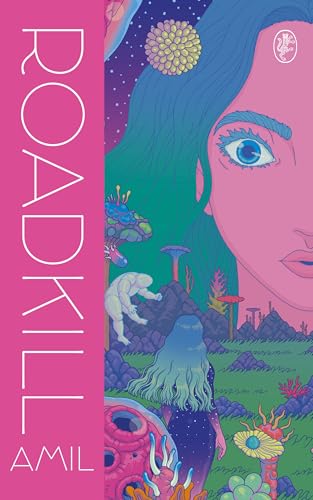
Roadkill
Amil Amil





